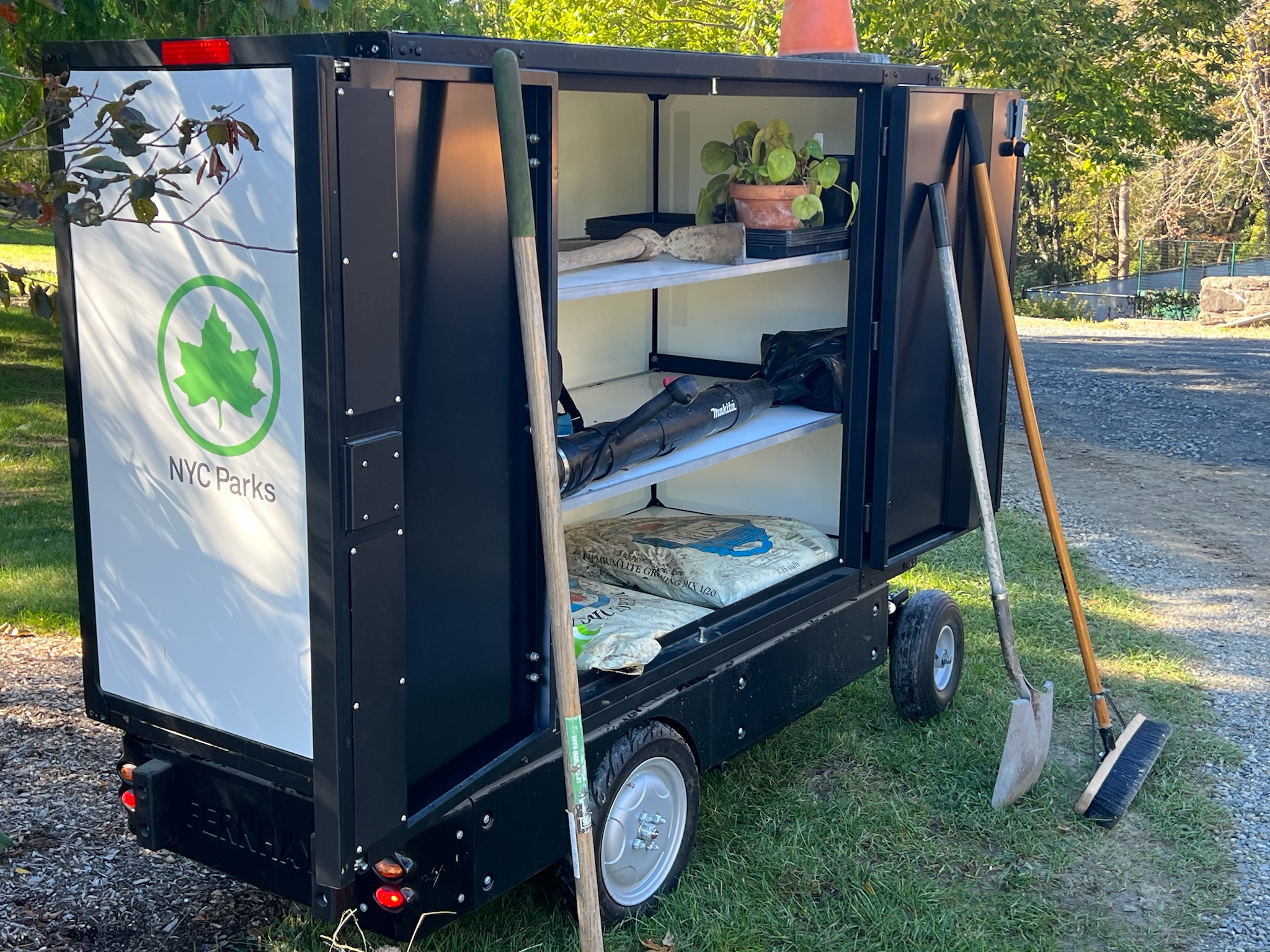Urban mobility is undergoing a seismic shift. As cities become denser and more eco-conscious, the transportation and logistics industries are racing to adapt to changing demands. Among these challenges, the surge in e-commerce and the need for sustainable last-mile delivery solutions stand out. This is where micro-logistics, powered by innovative solutions like Fernhay’s eQuad, steps in as a game-changer.
What is Micro-Logistics?
Micro-logistics refers to the localized distribution networks that facilitate the efficient movement of goods within cities. Unlike traditional logistics, which often rely on large-scale vehicles, micro-logistics focuses on lightweight, versatile, and sustainable options to meet the demands of urban environments. By prioritizing localized, eco-friendly solutions, businesses can reduce congestion, lower emissions, and provide faster deliveries.
Furthermore, micro-logistics supports the shift towards a circular economy by promoting the efficient use of resources and minimizing waste. This model not only addresses operational inefficiencies but also aligns with broader sustainability goals, which are increasingly prioritized by both businesses and consumers.
2025 Trends Shaping Urban Mobility
1. The Rise of Zero-Emission Zones
Cities across the globe are implementing zero-emission zones (ZEZs) to combat pollution and promote sustainable practices. Delivery companies now face the challenge of operating within these restricted areas without compromising efficiency. The eQuad, with its pedal-assist capabilities and compact design, is tailor-made for these environments, allowing businesses to navigate ZEZs seamlessly. This shift represents not only an operational adjustment but also a step towards a greener and healthier urban lifestyle.
2. Decentralized Warehousing
To meet the demands of faster delivery times, companies are moving towards decentralized micro-hubs located closer to customers. Solutions like the eQuad are critical in bridging the gap between these hubs and the end consumer. Its agile design enables easy navigation through congested streets, ensuring on-time delivery even in the busiest urban areas. As decentralization becomes the norm, logistics providers will increasingly rely on nimble, sustainable solutions to stay competitive in this fast-paced landscape.
3. Tech-Integrated Logistics
The integration of technology, such as route optimization and real-time tracking, is revolutionizing urban deliveries. Coupled with Fernhay’s eQuad, such technologies enhance operational efficiency, allowing logistics providers to optimize routes, minimize delays, and maximize customer satisfaction. Innovations like IoT sensors and AI-driven analytics also provide invaluable insights into delivery patterns, enabling companies to refine their strategies and reduce costs.
4. Consumer Demand for Sustainability
Eco-conscious consumers are influencing the logistics industry. They expect greener delivery options, pushing companies to embrace sustainable innovations. The eQuad, as an electric-assisted cargo bike, not only aligns with these values but actively contributes to a company’s green credentials. Additionally, businesses that adopt sustainable practices are more likely to build long-term trust and loyalty with this growing demographic of environmentally aware customers.
5. Shared Logistics Services
As the cost of urban logistics rises, businesses are collaborating through shared delivery networks. Compact vehicles like the eQuad are ideal for such shared solutions, providing flexibility and cost-effectiveness. Sharing logistics resources not only reduces operational costs but also helps in optimizing urban space usage, which is a pressing concern in overcrowded cities. This collaborative approach fosters innovation and efficiency across the logistics sector.
The eQuad: Redefining Last-Mile Delivery
Fernhay’s eQuad is at the forefront of micro-logistics innovation. Its unique design addresses the challenges posed by urban landscapes while maintaining high efficiency and sustainability. Here’s why the eQuad is leading the charge:
– Compact and Versatile
The eQuad’s small footprint ensures it can navigate narrow streets and crowded urban areas, making it perfect for cities where space is a premium. Its design also allows for easy parking and access, reducing delays caused by congested infrastructure.
– Environmentally Friendly
Equipped with electric assistance, the eQuad drastically reduces carbon emissions compared to traditional delivery vehicles. This not only meets regulatory requirements but also strengthens a company’s commitment to sustainability. Furthermore, the eQuad’s operational efficiency supports global climate goals, which are becoming increasingly important for businesses worldwide.
– Cost-Effective Operations
With lower operational costs than vans and the ability to avoid ZEZ fees, the eQuad offers a significant return on investment for logistics providers. Additionally, the eQuad requires minimal maintenance compared to motorized vehicles, further reducing long-term costs and enhancing profitability.
– Enhanced Customer Experience
The agility and efficiency of the eQuad mean quicker deliveries, a key factor in improving customer satisfaction in today’s competitive market. Faster delivery times combined with eco-friendly methods create a win-win scenario, boosting customer loyalty while ensuring sustainable growth.
Adapting to the Urban Landscape: The Way Forward
The future of urban logistics hinges on innovation and sustainability. As cities expand and regulations tighten, businesses must adopt adaptable, eco-friendly solutions to stay competitive. Micro-logistics and vehicles like the eQuad represent the next frontier in urban mobility, balancing efficiency, sustainability, and scalability. This evolution will not only redefine how goods are delivered but also pave the way for smarter, greener cities.
Key Recommendations for Businesses:
- Invest in Sustainable Infrastructure: Incorporate micro-logistics hubs and eco-friendly vehicles into your delivery network.
- Leverage Technology: Utilize data analytics and route optimization tools to maximize efficiency.
- Collaborate with Leaders: Partner with innovators like Fernhay to integrate cutting-edge solutions such as the eQuad into your operations.
- Educate Teams on Sustainability Practices: Training staff on the benefits and operation of micro-logistics solutions like the eQuad ensures smooth integration and optimal performance.
Conclusion
The shift towards micro-logistics is not just a trend; it is a necessity in the evolving urban landscape. As businesses prepare for the challenges of 2025 and beyond, embracing solutions like Fernhay’s eQuad will be key to thriving in the competitive logistics sector. With its unparalleled efficiency, sustainability, and adaptability, the eQuad positions itself as an indispensable tool in the future of urban mobility. By investing in such innovations, companies can drive positive change while ensuring long-term growth and resilience.

